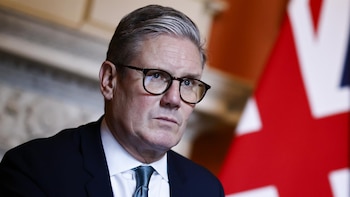
(Bloomberg) -- The French government’s bristling at the proposed $20 billion takeover of Carrefour SA by Canada’s Alimentation Couche-Tard Inc. may be a move to buy time to study the transatlantic retail deal, rather than entrenched opposition, according to people familiar with the matter.
The people, who are close to Carrefour and the government, said the finance ministry is ready to study the proposal once the Canadians officially present it. They said President Emmanuel Macron’s administration plans to take as long as needed to assess its impact on jobs and the sector.
Carrefour pared losses after the news, erasing most of the day’s decline. The shares traded down 1.7% at 3:30 p.m. in Paris after earlier falling as much as 7.4%.
French Finance Minister Bruno Le Maire said at an event Thursday that it would be “a major difficulty for all of us” if the supermarket chain were purchased by a foreign company. It was an echo of comments he made a day earlier when he said France needed to maintain domestic control over its food supply.
Carrefour employs around 100,000 people in France, making it the country’s biggest private employer, and one of the people said it’s possible that the French government will demand commitments fom Couche-Tard on protecting jobs. The deal isn’t expected to come with major job cuts however, as analysts point to the absence of overlap between the companies.
“People watching us at home are wondering what the impact on jobs will be, if food sovereignty will be guaranteed,” Le Maire said on Wednesday.
Bad Timing
The timing of the Couche-Tard’s interest is awkward for the French government, too, with local elections later this year, before a presidential election in 2022. A foreign takeover of such a famed French company would be fuel for nationalist presidential candidate Marine Le Pen.
That’s especially the case since just a few months ago, in the early days of the Covid epidemic, pasta and other essential goods went missing from shelves as people rushed to supermarkets, Le Maire insisted.
He cited new powers afforded to the finance minister in 2019 to screen foreign investments as a tool he could use to block the deal. In certain areas, including food distribution, that means foreign investments are subject to prior authorization.
Macron’s office declined to comment and referred questions to the finance ministry. A finance ministry official said Couche-Tard has not contacted the ministry regarding its intentions.
Previous French governments have tossed out deals in sectors ranging from yogurt to online video in the name of economic sovereignty, and during the purchase of Alstom SA’s energy unit by General Electric Co. demanded commitments to jobs.
More recently, under Macron, an investment-banker-turned-president, Le Maire opposed the combination of Renault SA with Italy’s Fiat Chrysler, only to push for Fiat to tie up with Peugeot maker PSA Group instead.
(Adds share price in third graph.)
Últimas Noticias
Debanhi Escobar: they secured the motel where she was found lifeless in a cistern
Members of the Specialized Prosecutor's Office in Nuevo León secured the Nueva Castilla Motel as part of the investigations into the case

The oldest person in the world died at the age of 119
Kane Tanaka lived in Japan. She was born six months earlier than George Orwell, the same year that the Wright brothers first flew, and Marie Curie became the first woman to win a Nobel Prize

Macabre find in CDMX: they left a body bagged and tied in a taxi
The body was left in the back seats of the car. It was covered with black bags and tied with industrial tape
The eagles of America will face Manchester City in a duel of legends. Here are the details
The top Mexican football champion will play a match with Pep Guardiola's squad in the Lone Star Cup

Why is it good to bring dogs out to know the world when they are puppies
A so-called protection against the spread of diseases threatens the integral development of dogs




